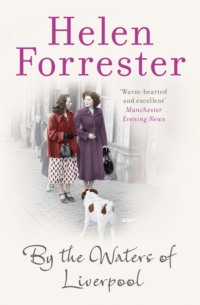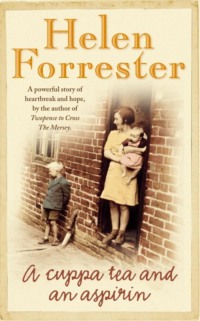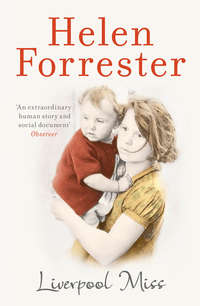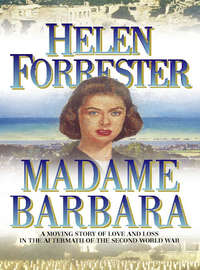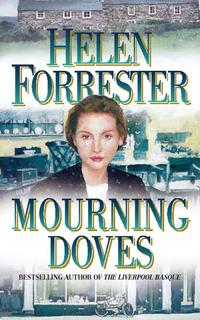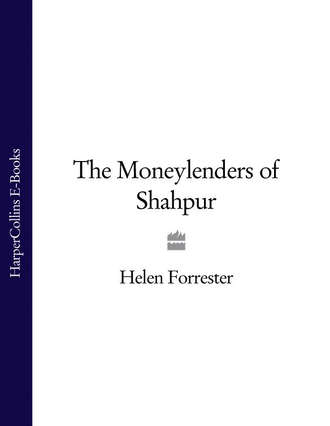
Полная версия
The Moneylenders of Shahpur
‘Excuse me,’ said the man in good English. ‘Can you tell me where to find Dr Mehta, the Dean?’
‘Certainly. His house is the eighth one from here, down that way,’ replied John, indicating the way the tonga had come.
‘I’m really looking for his office.’
John looked thoughtfully at the man. Definitely not a student, he decided.
‘I’m going to his office now,’ he said. ‘Would you like to come with me?’
The young man glanced up at the two ladies, who were whispering to each other, and seemed undecided. The tongawallah, on his high perch, started to fidget and began to mutter about people who made him wait forever and lose business. It was apparent that, at any moment, he would demand an increase in the agreed fare.
‘I don’t know what arrangements have been made for us. Mother is tired after our long journey.’
John’s perplexity must have shown on his face, because he added, ‘I’m Tilak from Bombay. I’m to teach Zoology here. In which department do you teach?’
‘I’m not a member of the University staff,’ John replied. ‘But Dr Mehta mentioned that you were coming. I hope you’ll like it here.’ He extended his hand to the newcomer.
Though Tilak’s fingers looked slim and delicate, his grip on John’s hand was firm. ‘Thanks,’ he said.
‘Perhaps the ladies would like to rest in my room,’ John suggested. ‘My servant would look after them, while we go to see the Dean.’
The offer was accepted with alacrity. With Ranjit’s help and with much puffing and blowing, Mrs Tilak and her daughter were installed in John’s room. John left to Ranjit the task of offering refreshments to the ladies. He had no idea of their caste or orthodoxy. If they were very orthodox, they would refuse all refreshment, in spite of the fact that Ranjit was himself a Brahmin.
Dr Tilak and he walked down the line of flat-roofed houses and bungalows before turning into the path which led to the Arts and Science Building. Tilak looked about him in a brisk, almost military manner which proclaimed his Maratha forebears, in marked contrast to the stolid, slower movements of Gujeratis. He seemed excitable and full of life, and remarked enthusiastically upon the green lawns and little flowerbeds which had been conjured up out of near desert.
Tilak had the beauty of face and form, thought John, which had made Indians famous for their looks, though he was gaunt and very dark-skinned. Though he did not know who John was, he was respectful to him, and he soon drew from him some details of his writings, in particular, about his new book on the history of the Marwari Gate temple and the surrounding district.
But Tilak’s expression lost some of its exuberance, as they chatted. Finally, he said, ‘I wonder what these Jains will think of my subject?’
‘Why? I expect there is a demand for Zoology courses here. Otherwise, it would not have occurred to the University to appoint you.’
‘There’s a demand – probably from Hindus. However, it may not have occurred to anyone that I’ll require small mammals to dissect for the benefit of my students – and fish to dissect for my own research.’ He turned to John, his face very earnest, ‘One can never be sure with Jains.’
John smiled at the ominous tone in which he pronounced his last sentence. His eyes twinkled, as he replied, ‘The Vice-Chancellor is a graduate of Harvard – I’m sure he’ll understand the requirements of modern research. We have some old diehards here. A few staff fought against the establishment of a Science Faculty. Dean Mehta is, himself, quite orthodox in his personal life – but I’ve never noticed his trying to impose his views on anyone else.’
Tilak relaxed a little and was about to make some further remark, when his attention was caught by a flutter of pink on the roof of the Dean’s bungalow, which they were approaching.
John, also, had noticed Anasuyabehn on the roof, her pink sari almost obscured by her long, black hair which she was drying in the sunlight. She was generally a very retiring girl and, presumably, imagined that she could not be seen from below or she would undoubtedly have dried her hair indoors; her Western education had failed to rob her of her modesty or dignity. Now, she stood, in all innocence, shaking out her wonderful tresses, and laughing and chattering with her friend, Savitri, who was seated on the low parapet which guarded the edge of the roof.
John thought what a contrast the two women made. Anasuyabehn had an inborn winsomeness, and, as she raised her arms to rub her hair, her fine figure was readily apparent; yet her laughing face and cheerful voice had all the ingenuousness of the carefully protected woman. She was no beauty; but he knew that when she felt at ease with people, she could be quite charming.
Savitri – well, Savitri was Savitri. Thin as a camel after a desert journey, hair cut short and permanently waved last time she had been in Bombay, large, horn-rimmed spectacles; an assertive woman, whose violent efforts to be modern sometimes had results which left her acquaintances gasping. Yet she and Anasuyabehn were old friends, products of the same school and the same college – but different parents, thought John. Though Savitri’s parents were Hindus, their home was almost completely European, while in Dean Mehta’s house, despite his study of English, many of the old Jain ways still lingered.
As he and Tilak came level with the bungalow, Anasuyabehn approached the parapet, and, parting her waterfall of hair with her hands, she looked out across the compound straight at Tilak.
Tilak stopped in his tracks, fascinated by the gentle, fair face, made stronger looking by sweeping black brows, and by the marvellous hair rippling down past the girl’s knees. In that unguarded moment she did, indeed, look very different from her usual modest self. Behind her, the leaves of an overhanging tree rustled and cast a dappled shade over her, guarding her from the searching rays of the sun.
She stood for a moment, as if captivated, and then, suddenly realizing her dishevelled state and the impropriety of staring at a man, she whipped away across the roof to the staircase.
Tilak continued to stare at the spot where she had stood, as if the shabby, white parapet had mesmerized him.
‘Heavens,’ he breathed in English, and then blinked and turned his face away, as he realized that he was being insolently scrutinized by Savitri, who was still seated on the low wall.
Embarrassed by this merciless examination, he turned to John and said in his stilted English, ‘What were you saying about the Vice-Chancellor and the Dean?’
John was also acquainted with Savitri. He gravely lifted his stick in salute to her. She smiled acknowledgment and he turned his attention again to Tilak.
Though Tilak had reopened the conversation, it was obvious that he was not really listening to John’s reply. His face was rapt as they walked along, the eyelids narrowed, the lips parted, and John felt uncomfortably that this lean, attractive newcomer was probably far too emotional to slip quietly into the life of the University. An intense man, thought John, with a difficult subject to teach, in a district where the life of every crawling bug is sacred.
In the middle of a story being told to him by John of how local villagers refused to spray a locust invasion, because of their beliefs, Tilak asked suddenly, ‘Whose was the bungalow where the two girls were up on the roof?’
As they climbed the steps of the Arts and Science Building, he looked up at John, impatient for his answer.
A quizzical gleam in his eye, John glanced back at Tilak. ‘It was Dean Mehta’s bungalow. Why?’
Tilak flushed at the query and did not reply at once. Then, with a burst of inspiration, he said, ‘It is helpful to know exactly where various members of the University staff live, and so on.’
In the hall, he saw the name of the Dean on a door facing him, and he promptly changed the subject, a slight grimness in his voice. ‘Well, here I go. Now we shall see what effect Zoology creates in a Jain world!’
But Dr Tilak was received with quiet courtesy by Dean Mehta and his fears were allayed. The Head Peon was instructed to help him remove his mother and sister and luggage from John’s room and he left to do this, while John arranged with the Dean to visit the Marwari Gate temple with him the following morning.
CHAPTER THREE
The Marwari Gate temple had been built by an emperor as a sacrifice for the sins of his teeth. John had visited it on a number of occasions, but this time he wanted to arrange to see some of its sacred manuscripts.
The next morning, with clean handkerchiefs held politely over their noses, he and Dr Mehta followed their amiable guide, a monk, through the courtyard and into the halls and sanctuary. He marvelled again at the lacelike carving of canopies, roofs and figures of Tirthankaras, all in white marble.
It was explained to him that some of the manuscripts he wished to see were kept in the Treasure House and no stranger could be admitted to that. He was allowed, however, to examine the outside of the Treasure House. It was covered with finely engraved silver. The engravings told the story of the fourteen dreams of Trisala, the mother of Mahavira who was the founder of Jainism. John asked if he might make sketches of these.
The monk was reluctant to agree to this, and called several others to consult them. John remembered again that a limp is considered punishment for past sins, and, from the conversation, he thought he would be turned down because of this.
They finally agreed, however, and John arranged to visit them again in a few days’ time.
Dean Mehta wished to remain at the temple with his religious teacher, so John wandered off by himself.
A few minutes’ walk brought him to the flower bazaar and to the big, frowsy cinemas; the latter were tawdry with electric lights and hand-painted posters showing languid, suffering film heroines.
Near one of the cinemas, he stopped to buy some hot sweetmeats from a man clad only in a loincloth, who had a tiny stall tucked into the angle of a wall.
While he slowly ate his sticky sweets out of the palm leaf in which they had been wrapped, he watched an artist in the cinema entrance painting a poster to advertise the next film. Crowds of people pushed impatiently around him. A beggar woman, clutching a naked, swollen-bellied child, squatted at his feet and whined hopefully. He put a coin into the child’s hand and the woman blessed him, while the starving child stared unseeingly over its mother’s shoulder, giving no sign of life, except to clutch the coin firmly in its mouselike hand.
Although such sights were familiar to him from childhood, a sudden wave of pity swept over him as the woman crept away. With an irritable gesture, he threw away the dripping palm leaf, and made to move out into the crowd.
‘Bennett Sahib!’ exclaimed a cheerful, feminine and very English voice. ‘How could you?’
Startled, he looked round.
Diana Armstrong, Dr Ferozeshah’s head nurse, was standing half behind him. Down her rumpled khaki skirt was a spreading splash of sugar syrup, where the palm leaf had struck her. Her freckled face, brick-red with heat, was crinkled up with laughter. Her red hair was plastered down against her head by perspiration and her khaki shirt was equally soaked and clung to her slim figure.
John’s first thought was that he had never seen a more bedraggled-looking Englishwoman. Then he hastily collected his wits. She was, after all, his doctor’s head nurse.
‘Miss Armstrong!’ he exclaimed. ‘I am so sorry.’
He looked around him helplessly.
‘Can I get you a tonga in which to return home? Or perhaps the restaurant across the road would find us something to wipe it with.’
‘The restaurant, I think,’ replied Miss Armstrong. Her voice had suddenly lost its laughter and was rather quavery. ‘I think I’d be grateful for a cup of tea as well.’
John looked at her sharply. The flush was ebbing from her face and he saw the blue smudges of fatigue under the clear green eyes. Poor woman, he thought. Why on earth does she work as she does, for an Indian doctor who probably pays her in annas?
He put his free hand under one of her elbows and, marshalling his stick, he guided her firmly across the street to the restaurant and into the gloom of a family cubicle at the back of it. He took her little black nurse’s bag from her and sat down. He knew her quite well as Dr Ferozeshah’s efficient shadow, but had never wished to know anything more of her, except to wonder idly how she came to work for Ferozeshah; and he was now quite surprised at his own temerity. She was, however, English like himself and obviously not feeling too well. He would not admit to himself that he wanted to speak English to somebody English.
‘Tea,’ he told the white-shirted, barefoot waiter, who was goggling at the rare sight of an English couple in his humble café. ‘English tea with sugar and milk separate – boiling water for the tea. And a clean cloth to wipe the Memsahib’s dress.’ He pointed to the sugar stain.
‘Would you like something to eat?’ he asked. ‘They make nice kabobs here.’
She smiled, showing uneven, very white teeth. ‘No, thank you,’ she said. ‘Just tea.’ She leaned back and closed her eyes for a moment, looking, in her exhaustion, soft and vulnerable.
The waiter departed, not too sure how to make English tea, but hoping the cook would know. He brought a cloth to sponge the skirt, and Miss Armstrong removed the worst of the stickiness.
‘It doesn’t matter,’ she said. ‘I’m a wreck anyway.’
John was inclined to agree with her but had sufficient diplomacy to stop himself saying so. He just twiddled his cold pipe which he had taken out of his pocket, and wondered what to talk about.
Miss Armstrong leaned her head against the wall of the cubicle and hoped she would not faint. She had certainly walked too far and too fast that morning. This John Bennett, though he was something of an oddity, was very kind and she was overwhelmed with gratitude at his bringing her into the restaurant and his concern at her spoiled skirt. She wished suddenly that she was beautiful, charming and amusing so that she could really entertain him with witty conversation. The ceiling gave a sudden swoop and was obliterated by a cloud of darkness for a second.
‘I think you had better sip some water.’ His voice came from far away, though he was bending over her and holding a glass, clinking with ice, to her lips.
She sipped gratefully and the faintness receded. John’s lined, red face, topped by its unruly brush of dark hair, came into focus.
‘Thank you,’ she said with a wobbly smile, ‘I am all right now.’
‘Perhaps you’re working too hard,’ ventured John. ‘Surely Ferozeshah doesn’t expect you to work all the hours God sends?’
‘Oh, no. He’s very reasonable – though he works like a machine himself.’
She leaned forward and put her elbows on the stained, battered table, and ran her fingers across her eyes. Her shirt was open at the neck. John found himself a little flustered by a glimpse of lace barely masking full, incredibly white breasts. It had been a long time, he thought depressedly.
Unconscious of the stir she had caused in her companion, Miss Armstrong relaxed in the welcome gloom of the restaurant. The dark, varnished wood partitions and the smoke-blackened ceiling gave it an air of shabby, homely comfort.
‘There’s so much to do here – for a nurse,’ she said, a note of compassion in her voice.
John sought uneasily for a further source of conversation. Finally, to bridge the growing gap of silence, he asked abruptly, ‘Were you visiting someone sick, just now?’
‘No – this is my spare time. I don’t have to be in the operating room until eleven, today. However, some of the big Jains here are trying to do a real survey of the city. They want to find out how many people live in each district, what water supplies they have, what parks or playgrounds for children. It’s an awfully difficult job. I’ve been counting refugees from Pakistan camped out on the pavements round here.’
John’s bushy eyebrows shot up in surprise.
‘That’s a departure – for Jains. They’ve always believed that suffering is brought upon oneself. I didn’t realize they cared how the other half lived. What’s the idea?’
‘To raise funds to provide some amenities in the worst slums.’
Miss Armstrong rubbed absent-mindedly at a water ring on the table. She looked up at John’s strong, calm face.
‘Humph,’ grunted John. ‘Times they are a-changing!’ His wide, thin mouth broke into a grin. ‘Jains are usually more interested in protecting animals than humans – charity is simply giving to monks and beggars.’
‘I know,’ replied his companion. ‘That’s why I want to help them.’
She removed her elbows from the table, so that the waiter could put down the tea tray. When he had gone, she seized the teapot in a small, strong hand and poured out the tea.
John took the proffered cup and himself added sugar and milk, while Miss Armstrong sipped eagerly at the black brew in her own cup. She sighed. ‘That’s better. Mind if I smoke?’
‘Not at all. Do you mind if I smoke a pipe?’
Miss Armstrong dug a packet of Capstan out of her shirt pocket. After he had given her a light, she began to look a little less flushed and her skin took on its more normal appearance.
‘Cream velvet powdered with freckles,’ reflected John in some surprise. ‘She can’t be much over thirty.’
He told himself hastily to stop thinking like a naive youth, and he dragged his mind back to the prosaic subject of the proposed map. ‘I know Shahpur quite well,’ he told her. ‘I was actually born here, and I think I could draw a map of most of it. I’m sure that a proper one doesn’t exist, particularly since the influx of refugees – they’ve built all kinds of shanties – I’ve watched them go up.’ He laughed a little grimly. ‘I bet the postmen are the only ones who really know Shahpur.’
‘You’re right.’
‘It would save a lot of time, if you had a map – and, believe me, I could fill in a great deal of detail – mosques, temples, ruins, fountains – what few gardens there are …’
‘Would you really draw one?’ Miss Armstrong asked eagerly. Her face was alight, the mouth a trifle open to show the tip of a tongue as narrow as a cat’s. ‘Could I tell Lallubhai – he’s the Chairman – about your offer?’
‘Certainly,’ replied John, and wondered what possessed him to undertake such a monumental piece of work. ‘Do you want a wall-sized map – or sections?’
She looked doubtful and then quickly glanced at her watch. ‘I’m not sure. Look, I’ve got to be in the operating room by eleven.’ She picked up her bag. ‘Could we meet somewhere to talk about it?’
John was immediately appalled at this complication. There was not a single European restaurant in the city. He could not very well ask her to his room. A vision of Ranjit’s horrified face floated before him – an English Memsahib in his room would probably ruin her reputation. He had no idea where she lived or with whom. What a fool he was to get involved.
He fumbled with his pipe, matches and stick, at the same time trying to open the swing door of the cubicle for her. She waited patiently while he sorted himself out and thought of an answer to her question.
‘Perhaps you should first talk to your Chairman, Mr Lallubhai,’ he temporized, as he finally managed to push the door open with his elbow. ‘If a student or artist would volunteer, I’d be glad of a little help. Any map I draw is not going to be technically perfect, but it’ll save your Committee a lot of work.’ He paused outside the cubicle, and then asked, ‘I wonder if Mr Lallubhai has thought of asking the City Engineer for a look at his maps. He’ll have some showing drains, waterpipes …’
Miss Armstrong’s little white teeth flashed in a quick smile. ‘I’m sure none of the Committee has thought of it. I’ll suggest it. I’ll write to you – your address is in Dr Ferozeshah’s file.’
As they moved through the crowded restaurant, customers paused in their conversation to watch them pass. At the bottom of the narrow entrance steps, they were besieged by beggars. Miss Armstrong ignored them. She looked up at John, and said, ‘You’re a brick to offer to help – it’s a big job – are you sure you want to do it?’
She looked anxiously at him, and he could not say to her that he wished he had not volunteered, and said instead, ‘I shall enjoy it – it will be a change for me. Now, can I get you a tonga?’
She was dismissed and, in spite of his affirmative reply, felt unaccountably a little hurt.
‘No, thank you,’ she muttered, ‘I’ll walk. Goodbye – and thank you.’
She turned stiffly on her heavy, flat-heeled shoes, and in a moment was lost in the jostling crowd.
John waved at a passing tonga, and the driver drew into the pavement.
‘University Road,’ said John, ‘How much?’
‘Eight annas, Sahib,’ said the driver outrageously.
‘Four annas and not a pice more.’
‘Sahib,’ the voice was full of reproach.
‘Four annas.’
‘Six annas,’ said the driver, ‘and not a pice less,’ and he lifted his whip to start his horse, to indicate that he would rather go without a fare than reduce his price further.
‘All right,’ said John, and clambered in through the door at the back of the carriage. A little boy, who had been sitting by the driver, scrambled down, ran round the tonga and locked the door after John.
John smiled at the boy and gave him an anna. But behind the smile he felt cross. In two days two new people had entered his life, if one counted that Miss Armstrong had previously been only a pair of hands passing papers to Dr Ferozeshah. They both seemed to be people who would disrupt the peace of his life; Dr Tilak appeared likely to seek his advice quite often and Diana had momentarily disturbed his usual composure.
Since his dismissal by his fiancée, he had tried to avoid women, swearing that he would never let himself be hurt again. Almost every time he walked, he was reminded of the repugnance in his fiancée’s eyes, when she saw how crippled he was; and then he would damn all women.
He told himself not to be ridiculous. Nevertheless, by the time he was deposited at his compound gate, he had worked himself into a thoroughly bad temper. When Ranjit saw him, he scampered out to his own veranda, from which he did not stir until he had listened to the typewriter pounding steadily for more than half an hour.
Later, when he crept into the room to ask the Sahib what he would like for dinner, he was surprised to find him leaning his head disconsolately against the typewriter, looking as miserable as he had when first he returned to Shahpur.
‘Sahib?’ queried Ranjit, his wizened face full of concern. ‘Are you well?’
The Sahib did not raise his head from its hard resting place, but he smiled up at Ranjit out of the corners of his eyes, and with a jolt Ranjit was reminded of the small boy John had once been who wept and raged his frustrations out of himself.
‘I am all right now, Ranjit. Sometimes I get fed up because I don’t walk very well.’
Ranjit scratched his jaw, and wondered if that was the only trouble. He decided, however, that this was not the time to probe further, and said, ‘Your legs improve daily, Sahib. Don’t get depressed.’ Then in a cheerful managing voice, he asked, ‘What would you like for dinner? I have some good lady’s fingers, succulent and green.’
‘I’d rather have them smooth and white,’ said John with sudden spirit, while Ranjit looked at him aghast.
CHAPTER FOUR
It was about three weeks later that John was again reminded of an uneasy sense of unwanted change in his life.
Ranjit came in to tidy his room and, seeing that he was not working, sat down on the floor to gossip.
He regaled John with a detailed description of the contents of Tilak’s baggage, Mrs Tilak’s disgruntlement at the poor lodgings provided for her son by the University, Dr Tilak’s hot temper and, by comparison, the quiet character of his sister, Damyanti. Mrs Tilak was a widow, he said, and she and her daughter normally lived with her elder brother-in-law in Bombay.


